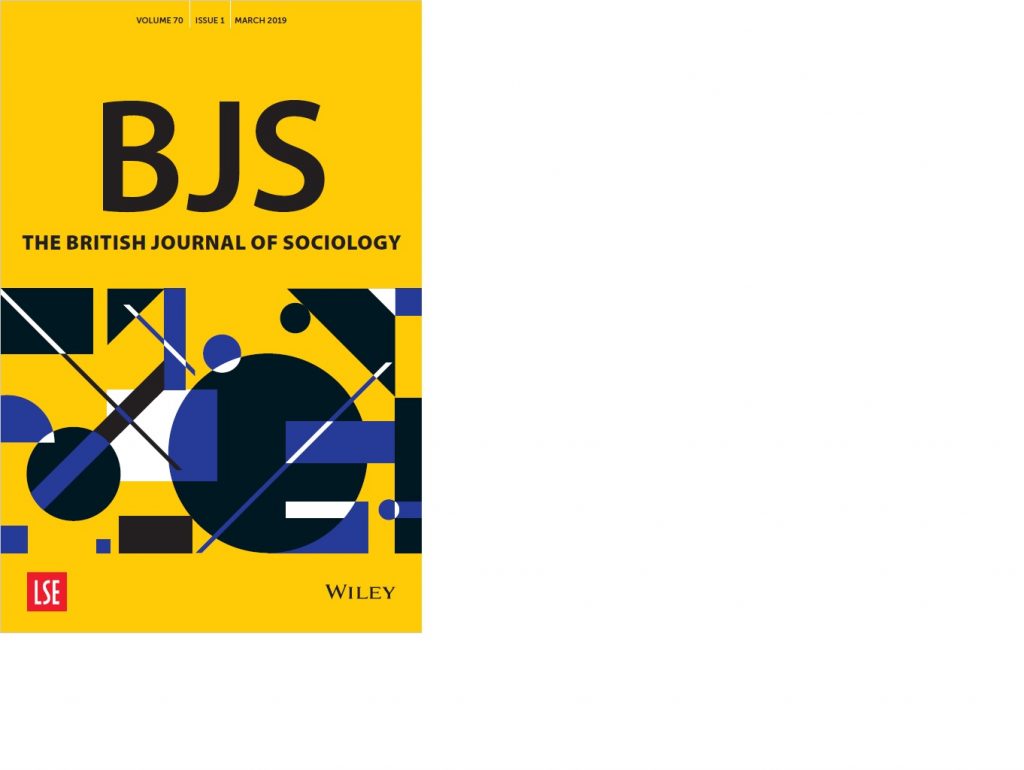"Old enough to know better?" The decline of deviance in the young

By r.f.m II from Colora Maryland, United States (Self-Portrait #26) [CC-BY-SA-2.0 (http://creativecommons.org/licenses/by-sa/2.0)], via Wikimedia Commons
A recent article by editor of The Spectator, Fraser Nelson, highlighted an interesting set of trends among young people in the UK. Young people are having less sex, drinking less, and taking fewer drugs than older generations. Nelson invoked the 1990s BBC sitcom Absolutely Fabulous, where the mother – binge-drinking, hedonistic, promiscuous fashionista Edina – was consistently disappointed by the celibacy, abstinence and downright sensibleness displayed by her daughter Saffron. Saffie would chastise her mother for disturbing her homework when she arrived home drunk on champagne and vodka following a gallery opening or a fashion show, while Edina would complain about her daughter’s sexual restraint: “I don’t want a moustached virgin for a daughter, so do something about it!”
[youtube]https://www.youtube.com/watch?v=8RTw-4NA0Eo[/youtube]
At the time it was screened, ‘Ab Fab’ was viewed as a ridiculous rollercoaster-ride of role-reversals and filial contradictions, bearing little relation to the real world – no parent and offspring actually behaved like that, did they. The show’s principle writer and main star Jennifer Saunders didn’t write the show to be a reflection of reality, and it wasn’t. That was the joke (although I admit I never found the show that funny myself). Yet now it does seem remarkably prescient in its depiction of a strange generational shift which sees young people being, in many senses, more conservative than the liberated generation that preceded them.
Take drinking. Research by the Health and Social Care Information Centre shows that the proportion of school pupils aged between 11 and 15 who drank alcohol in the last week has fallen from 26% in 2001 to 12% in 2011 (i.e. it’s more than halved), and the proportion who have never tried alcohol has risen from 39% in 2003 to 55% in 2011. Among slightly older young people the picture is still one of a decline in alcohol use. In 1998, 71% of 16- to 24-year-olds questioned said they’d had a drink that week. Today it is 48% – far lower than their parents (about 70%).
The picture is similar for drug use, which for 16-24 year olds has seen historic declines according to Home Office statistics released in 2012. Reported use of any illicit drug within the last year fell from 29.7% in 1996 to 19.3% in 2011/12, largely due to big declines in cannabis (from 26.0% to 15.7%) and amphetamine use (from 11.8% to 2.0%). The overall picture for the total UK adult population is one of no-significant-change between 1996 and 2011/12, suggesting that something particular is happening for younger people.
And young people are having less sex, too. UCL’s National Survey of Sexual Attitudes and Lifestyles found that UK women aged between 16 and 44 were having sex an average of 4.8 times a month, an men, 4.9, compared with 6.1 and 6.4 ten years ago.
What’s going on? Public institutions like the police, teachers and youth workers may claim some credit for a decline in illegal or potentially antisocial activities like drinking and drug-taking. As far as underage drinking goes, it is certainly harder for young people to buy booze than it was when I was a teenager in the 1990s. At that time, it was relatively easy to send one of our friends (usually female, and wearing as much make-up as possible) into the nearest off-licence to buy some cheap grog. More often than not she would emerge successful, holding a few bottles of cider which we’d go and drink surreptitiously on a park-bench. Try drinking on a park-bench as a youth these days, and you’ll likely be handed an ASBO by the police. And before you even get to the park, it’s unlikely you’d get served in the first place, as retailers can now be hit with a fine of up to £20,000 for selling alcohol to minors. Shopkeepers in 2014 are so vigilant that even I, at the ripe old age of 32, am regularly asked for ID when buying alcohol. (Whilst I freely admit that I take being mistaken for a teenager as somewhat of a compliment.)
Nelson suggests that the reasons for this trend may be practical and financial. Youngsters are increasingly aware that the world that awaits them after education is one of unstable employment, and, for university graduates, huge debt. The desire to study hard, compete in an increasingly unforgiving labour market and get on the housing ladder may drive ‘Generation Y’ towards a stronger work ethic which their parents, the baby-boomer Generation X, didn’t have to grapple with. Much is made these days of the so-called generation gap between those post-war baby-boomers and the young, yet one of the strangest and less-noted facts of this gap is that pensioners today spend more money on booze than the under-30s do. While stronger drinking laws and higher taxes on alcohol may go some way to explain this, perhaps this reflects a growing attitudinal difference among the young who, faced with an uncertain future, are more hard-headed and sober (literally) than the hippies and beatniks of yesteryear.
Mark Easton, writing for the BBC, theorises that this decline in drug and alcohol use may be a new way for ‘Generation Y’ teenagers to differentiate themselves from their parents’ generation. “Smoking, boozing, dropping pills and hooliganism – that’s so Generation X. These days, perhaps, adolescent identity is defined more by the use of social media rather than the use of illicit drugs. It might be that texting, messaging [and] Facebook provide the exclusive amity once provided by gangs and musical sub-cultures.” (this is something I hint at in my previous blog on Grunge and Britpop).
Using the rise of the Internet as the key explanatory variable is very convenient when trying to understand these kind of social changes, but there is probably something to this, and not just because the virtual world is replacing the park-bench as the chosen hangout space for the young. Going back to the decline in sexual activity over the last decade, this trend seems to me to be undoubtedly linked to social networking and the growing accessibility of pornography, both of which are now only as far away as one’s smartphone, and which are opening many virtual, exotic and other-worldly doors for the young, whilst closing the physical doors between potential friends and would-be lovers.
For policy-makers, the rise of Ab Fab Britain may be seen as a good thing in terms of public health and public order. Young people are less likely to drink, smoke, break the law, be promiscuous, or take drugs. Yet these developments may be also be worryingly symptomatic of a generation which is perhaps the most worried, risk-averse and atomised ever.




1475-6781/asset/JSS.gif?v=1&s=377bb8e0c3d0fcf201f301ded7cf610142072c3e)
Similar patterns in the U.S. C.D.C. report as reported on Vox.com
http://www.vox.com/2014/5/25/5748178/todays-teenagers-are-the-best-behaved-generation-on-record
Interesting. On the issue of less sex, there appears to be something going in Japan too.